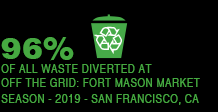

Recreational events gather large numbers of people in concentrated areas for brief periods of time. This will thereby lead to a more diverse literature on events, and will rebalance the current dominance of quantitative‐based research papers, and it is for this reason that this paper makes an original contribution to knowledge in the study of events and festivals. The academic researcher is introduced to the potential offered by ethnography and is pointed in the direction of the relevant research methods literature that would equip them with the practical tools of investigation.īy alerting the reader to the applicability and value of ethnography, this paper aims to encourage the adoption of the ethnographic approach by event researchers. Drawing from the wider literature on ethnography, a rationale for an alternative methodology with the associated research methods of observation, interviewing and the use of documentary sources is explored and its applicability to events research is demonstrated. The literature on qualitative methods and on ethnography in particular is also examined, in a bid to show how ethnography can be used and how it is specifically suited to inquiry into the consumer experience of events and festivals.Įthnography is advocated as an appropriate research approach to the events field, and this paper details the extensive potential that this approach offers. This purpose of this paper is to support a paradigm shift to effect a more balanced examination of events within the existing body of literature.Ī search of events‐related publications in both events and non‐events journals is conducted in order to identify the level of use of the ethnographic approach by researchers in event studies. The paper contributes to the emerging literature on sustainable events and also develops earlier research on the role of events and other income-generating activities in historic buildings.Įvents research is witnessing a gradual increase in experience‐related studies, reflecting a challenge to the dominance of positivist, quantitative‐based studies. A key finding of the research is that event managers within historic buildings have complex views of sustainability that are specific to these properties and which are not captured in the mainstream events management literature. This research analyses the contribution that events can make to the sustainable management of historic buildings, with an emphasis on understanding the perspectives of event managers within these properties, based on qualitative interviews with historic building event managers and stakeholders in London, United Kingdom. Little research has thus far investigated the role that sustainable events can play in the management of historic buildings, beyond considerations of the trade-off between conservation and income generation. In particular, these professionals are required to maintain the complex balance between the competing priorities of historic value and contemporary relevance. These findings contribute to the event management field by modeling greening principles and highlighting the similarities and differences in mega-event greening.Īs the use of historic building as venues for commercial activity grows, events management professionals working in historic buildings are faced with a number of sustainability challenges, including conservation, preservation, social value and financial sustainability, as well as with satisfying their clients. And (3) a typical hierarchical model of greening governance was utilized, and an environmental certification and a participatory mechanism for various stakeholders were lacking.


(2) Hospitality management ignored solid waste minimization, eco-procurement, and the greening of visitors.

The results showed that (1) pollution control, improvements in the ecosystem services supply, greening of industry, and a sustainable transport strategy were utilized to enable a greener urban eco-environment, greener industries, and a more efficient transport system. Using the 2011 International Horticultural Exposition in Xi'an as a case study, green practices from bidding to preparing to hosting were identified and analyzed. This study aimed to fill this gap by identifying present and absent factors in the greening framework of a mega-event hosted by a city in China. Green mega-events have become popular, but few critical examinations of these events have been conducted.


 0 kommentar(er)
0 kommentar(er)
